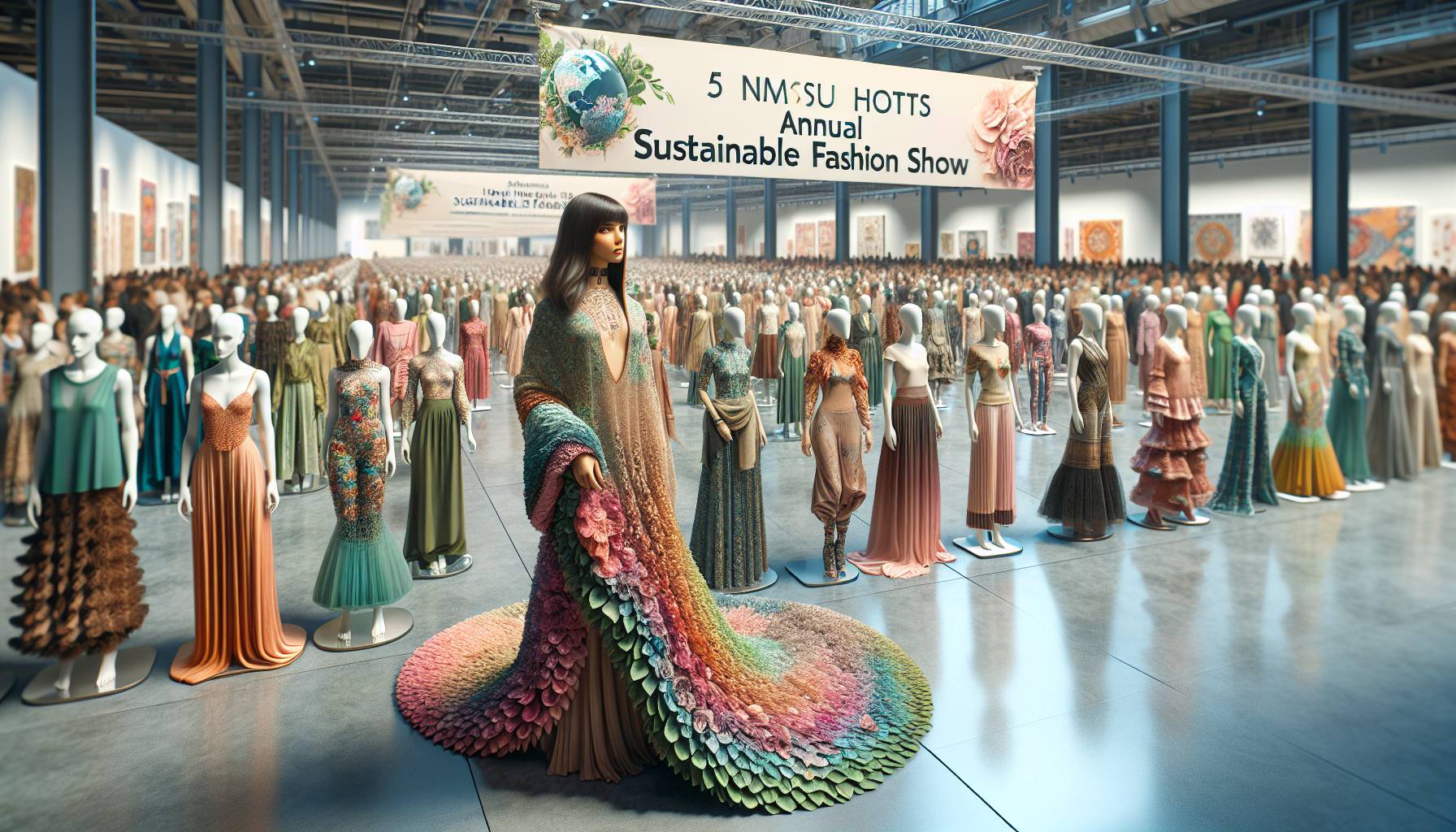Legal action taken by Marissa Wilson
Designer Marissa Wilson has taken formal legal steps to protect her brand identity, confirming that she issued a cease and desist letter to officials associated with the “Origins: Guyana Fashion Festival.” The legal notice was sent after Wilson became aware that her name and brand were being linked to the event without her consent or involvement.
According to Wilson, the decision to pursue legal action was not taken lightly. She emphasised that the cease and desist letter was a necessary measure to prevent any further misrepresentation of her brand and to safeguard her professional reputation. The letter demanded that all references to her name and brand be removed from promotional materials and communications related to the festival.
Wilson’s legal team outlined specific concerns in the letter, including the unauthorised use of her intellectual property and the potential for public confusion regarding her affiliation with the event. The letter also warned of further legal consequences should the organisers fail to comply with the demands outlined.
This move underscores the importance of brand protection in the fashion industry, where unauthorised associations can have significant implications for a designer’s credibility and market positioning. Wilson’s swift legal response reflects a broader trend among designers to assert control over how their names and creative work are used in public forums.
Disassociation from Guyana fashion event
Marissa Wilson has made it unequivocally clear that she has no affiliation with the “Origins: Guyana Fashion Festival,” and has taken deliberate steps to distance herself and her brand from the event. In a public statement, Wilson expressed concern over the misleading use of her name in connection with the festival, stating that she was neither consulted nor involved in any capacity with its planning or execution.
She further clarified that any promotional materials or communications suggesting her participation were entirely unauthorised and misrepresentative. Wilson noted that such actions not only mislead the public but also compromise the integrity of her brand, which she has worked diligently to build on a foundation of authenticity and creative independence.
To reinforce her disassociation, Wilson’s team has requested that all digital and print references to her name be immediately removed from the festival’s marketing channels. This includes social media posts, press releases, and event programmes that may have implied her endorsement or involvement.
Industry observers have pointed out that Wilson’s proactive stance sends a strong message about the importance of consent and transparency in brand collaborations. In an era where designer names carry significant weight, unauthorised associations can lead to reputational damage and confusion among consumers and industry stakeholders alike.
Wilson’s decision to publicly distance herself from the event also reflects a growing awareness among designers of the need to maintain strict control over how their brand is represented, particularly in international contexts where legal protections may vary. Her actions serve as a reminder that brand identity is not only a creative asset but also a legal one that must be vigilantly protected.
Clarification of brand involvement
Marissa Wilson has taken the opportunity to clarify the extent of her brand’s involvement—or lack thereof—with the “Origins: Guyana Fashion Festival,” emphasising that at no point was she approached for collaboration, nor did she grant permission for her name or brand to be associated with the event. She stated that any implication of her participation was entirely fabricated and not reflective of her professional standards or business practices.
Wilson highlighted that her brand operates with a clear set of values centred on authenticity, creative integrity, and intentional partnerships. She explained that all official collaborations are carefully vetted and formalised through contractual agreements, none of which were in place with the organisers of the Guyana-based festival. This clarification was necessary, she said, to prevent any further confusion among her clientele, industry peers, and the broader fashion community.
In her statement, Wilson also addressed the potential impact of such misrepresentations on her brand’s global reputation. She noted that her label has worked hard to establish a distinct identity in the international fashion landscape, and any unauthorised use of her name risks undermining that effort. She reassured her supporters and collaborators that her team remains committed to transparency and will continue to take all necessary steps to protect the brand’s image and values.
To further reinforce her position, Wilson’s representatives have begun reaching out to media outlets and industry partners to correct the record and ensure that no lingering misconceptions persist. They have also encouraged members of the public and fashion professionals to verify any future claims of brand involvement through official channels.
This incident has prompted broader discussions within the fashion industry about the importance of clear communication and consent in brand representation. Wilson’s response serves as a case study in how designers can assert control over their brand narrative, particularly in an era where digital misinformation can spread rapidly and cause lasting damage.
Legal action taken by Marissa Wilson
Designer Marissa Wilson has taken decisive legal steps to protect the integrity of her brand, issuing a cease and desist letter to officials in Guyana. The move comes amid concerns over the unauthorised use of her name in connection with the “Origins: Guyana Fashion Festival.”
Wilson, known for her vibrant, culturally rich designs and commitment to authenticity, confirmed that the legal action was necessary to formally distance herself from the event. She emphasised that neither she nor her brand had any involvement in the planning, promotion, or execution of the festival.
“It was important for me to take immediate legal action to ensure that my brand is not misrepresented or associated with events that do not align with our values or creative direction,” Wilson stated.
The cease and desist letter serves as a formal demand for the organisers to stop using her name and brand likeness in any promotional materials or communications related to the festival. This legal measure underscores the importance of brand control in the global fashion industry, particularly for designers navigating international markets.
For Australian designers and fashion entrepreneurs, Wilson’s swift response is a reminder of the critical role legal protections play in safeguarding creative identity and brand equity on the world stage.
Disassociation from Guyana fashion event
Following the legal notice, Marissa Wilson has made it unequivocally clear that she is not affiliated with the “Origins: Guyana Fashion Festival” in any capacity. The designer, whose work is celebrated for its bold prints and Afro-Caribbean influences, expressed concern over the potential confusion the unauthorised association could cause among her clientele and industry peers.
Wilson’s team confirmed that no permissions were granted for the use of her name, likeness, or brand assets in relation to the festival. The designer, who has showcased at New York Fashion Week and is gaining traction in the Australian market, noted that the misrepresentation could undermine the trust she has built with her audience and collaborators.
“My brand is built on authenticity, cultural respect, and intentional storytelling. Any misalignment with those values can dilute the message we’ve worked so hard to craft,” Wilson explained.
In distancing herself from the event, Wilson also highlighted the broader issue of intellectual property misuse in the fashion industry—an issue that resonates with many Australian designers working to establish their brands globally. The incident serves as a cautionary tale about the importance of maintaining control over brand narrative, especially when operating across international borders.
Wilson’s proactive stance has been met with support from industry insiders, who view her actions as a necessary step in preserving the integrity of independent fashion labels. For Australian fashion professionals, her experience underscores the need for vigilance and legal preparedness when engaging with international opportunities.

